Introduction of E-Commerce Fulfilment
In today’s fast-paced digital marketplace, e-commerce fulfilment is a critical component for any business hoping to succeed online. As customers increasingly turn to digital channels for their shopping needs, those companies who strategically optimize order management and shipping gain a clear benefit over competitors. A thoughtfully crafted fulfilment plan represents far more than the transactional conveyance of goods; it symbolizes an assurance that buyer demands will be satisfied.
According to the projections published in Grandview Research’s 2023 study, the worldwide e-commerce fulfilment sector was valued at $86.44 billion in the year 2022 and is anticipated to reach $168.72 billion by the end of the decade. Likewise, according to the reports of Statista. The e-commerce fulfilment service global market is worth an estimated $124.8 billion, up 13.9% year-over-year, and the market value for 2023 totalled $109.6 billion, up 12.6% YoY.

This highlights the need for businesses to invest in the proper fulfilment solutions to retain customers and drive repeat sales. In this guide, we’ll explore how businesses can simplify e-commerce fulfilment, reduce operational costs, and enhance customer satisfaction
What is E-Commerce Fulfilment?
E-commerce fulfilment involves the complete steps of obtaining, handling, packaging, transporting, and handing products over to online purchasers. It guarantees that items arrive at consumers rapidly and correctly. An optimized completion process heightens client fulfilment, decreases functional costs, and enhances brand dedication. Whether a corporation manages completion internally or collaborates with a third-party logistics supplier, an effective completion framework is fundamental for scaling and keeping a competitive advantage. Alternatively, some companies choose to simplify completion by focusing primarily on online sales while partnering with experienced logistics specialists for warehousing, packaging, and shipping. With meticulous planning and technological innovations, partnerships allow businesses to scale up their operations in a cost-effective manner without sacrificing quality or speed of fulfilment.
Types of E-Commerce Fulfilment Services
1- In-House Fulfilment
In-house fulfilment, commonly referred to as self-fulfilment, entails that a business itself has to take care of the order-fulfilment process. Tasks that fall within this broad category include inventory storage, picking orders, packing them, and directly shipping them to customers. For businesses such as small firms with complete control over inventory management, packaging, and branding, such fulfilment services are tremendously helpful. However, as orders continually increase in number, dealing with fulfilment independently becomes overwhelming.
Pros & Cons of In-House Fulfilment
Pros
- Businesses can save third-party fulfilment fees, making it a cost-effective solution for startups.
- Owners have full control over inventory, packaging, and customer service.
- Businesses can create a unique brand experience with custom packaging and personalized touches.
Cons
- Managing fulfilment requires warehouse space, staff, and logistics coordination, which can be overwhelming as sales grow.
- As order volumes increase, self-fulfilment may slow operations and lead to delays.
- Without bulk discounts from 3PL providers, businesses may face higher shipping expenses.

2- 3PL E-commerce Fulfilment (Third-Party Logistics)
Third-party logistics fulfilment of e-commerce is whereby businesses outsource the order fulfilment process to another company. A third-party logistics company also stores inventory, picks, packs, and ships products for an eCommerce business. Suits the growing eCommerce businesses, where this is the solution to scaling operations without an upfront investment into postage. Most crucially, it would let businesses focus their efforts on the necessities of business; marketing and product development rather than inventory management.
Pros & Cons of 3PL Fulfilment
Pros
- Saves businesses from investing in warehouse space, staff, and logistics infrastructure.
- Offers access to advanced fulfilment technology, automation, and faster shipping
- Enables scalability, making it easier to handle high-order volumes efficiently.
Cons
- Less direct control over inventory and packaging customization.
- Additional costs for storage, fulfilment, and service fees.
- Dependency on the 3PL provider’s efficiency and service quality.

3- Dropshipping & On-Demand Fulfilment
With drop shipping and demand fulfilment, it’s possible to promote and sell goods without maintaining an inventory. Therefore, when an order is received, a supplier or manufacturer ships the order directly to the customer. This means that inventory, cash flow for stocking, and space for storage are done away with, thus providing a low-risk fulfilment solution for startups and e-commerce businesses. Generally, very flexible and cost-effective companies prefer dropshipping for fulfilment.
Pros & Cons of Dropshipping & On-Demand Fulfilment
Pros
- No need for inventory storage or upfront capital investment in stock.
- Low overhead costs as businesses don’t require a warehouse or fulfilment team.
- Wide product variety, allowing businesses to test new items without financial risk.
Cons
- Lower profit margins due to higher supplier costs and fees.
- Less control over fulfilment speed, packaging, and product quality.
- Reliance on third-party suppliers may lead to stock issues and shipping delays.

Choosing the Right E-Commerce Fulfilment Solutions
Selecting the best e-commerce fulfilment solution is crucial for ensuring efficient operations, fast deliveries, and customer satisfaction. The proper fulfilment strategy can reduce costs, streamline logistics, and scale your business growth. When evaluating fulfilment options, businesses must consider several key factors
1- Scalability: Growth Potential
The first factor that must be kept in consideration while seeking e-commerce fulfilment solutions is scalability as your fulfilment solution must grow with increasing demand. If you are running a large business, consider a fulfilment centre with multiple warehouses to ensure faster delivery and prevent bottlenecks. On the other hand, small businesses and startups might start with self-fulfilment or dropshipping but should be prepared to transition to 3PL providers as they scale.
2- Technology: E-Commerce Fulfilment Software
The next key aspect is technology, which plays a crucial role in optimizing fulfilment speed and accuracy. If you operate a high-volume e-commerce store, investing in a fulfilment provider with AI-driven inventory tracking and automated order processing ensures smooth operations. Meanwhile, smaller businesses should focus on platforms integrating with their e-commerce store for efficient management.
3- Location: E-Commerce Fulfilment Centre Near Me Strategy
Another important factor is location, as strategically placed fulfilment centres reduce shipping costs and delivery times. Large businesses benefit from global or multi-region fulfilment networks to meet customer demand across different markets. For small businesses, working with fulfilment providers that offer localized warehouses can improve shipping efficiency while keeping costs manageable.
4- Cost: Finding the Cheapest E-Commerce Fulfilment Options
Finally, fulfilment costs also directly impact profitability. If you are a growing business, look for a provider that offers volume-based discounts and flexible pricing plans. For startups, keeping costs low with affordable pick-and-pack services and transparent fee structures is essential to maintain healthy profit margins.
E-Commerce Fulfilment UK: The Growing Market
The UK has become one of the fastest-growing e-commerce markets, with online sales accounting for a significant portion of total retail revenue. As online shopping continues to surge, businesses require efficient e-commerce fulfilment solutions to handle increasing order volumes, ensure fast shipping, and meet customer expectations. The demand for e-commerce fulfilment services UK has led to the rise of advanced third-party logistics (3PL) providers, warehousing solutions, and last-mile delivery services, ensuring businesses can scale efficiently.
Landing at the Best Option: A trustworthy E-Commerce Fulfilment Partner
When it comes to reliable and efficient fulfilment, Kun Fulfilment stands out as a strategic partner for businesses looking to expand their reach in the UK market. Specializing in order fulfilment, warehousing, and last-mile delivery, Kun Fulfilment provides the best solution for eCommerce brands, promising fast, accurate, and cost-effective shipping. Kun Fulfilment’s innovative fulfilment technology integrates with major e-commerce platforms, enabling automated e-commerce order fulfilment. Moreover, it handles various industries that you name, including health, sportswear, beauty, cosmetics, apparel, and whatnot. Not only this, Kun’s services are equally available for brands operating at any scale.

The Future of E-Commerce Fulfilment
The e-commerce fulfilment landscape is rapidly evolving with advancements in automation, AI-driven logistics, and sustainable packaging solutions. Businesses are increasingly adopting robotic warehouses, real-time inventory tracking, and predictive analytics to enhance efficiency and reduce errors. Same-day and next-day delivery are becoming the standard, pushing fulfilment providers to optimize their networks with micro-fulfilment centres and intelligent routing systems. Additionally, eco-friendly fulfilment practices, such as biodegradable packaging and carbon-neutral shipping, are gaining traction as sustainability becomes a key consumer priority. As technology continues to reshape logistics, businesses that embrace smart, scalable, and tech-driven fulfilment solutions will remain ahead in the competitive e-commerce landscape.
Read More About Fulfilment Services: Everything You Need to Know
Bottomline
E-commerce fulfilment is the base of online business success, promising fast, efficient, and cost-effective order processing. Whether leveraging 3PL fulfilment, automated solutions, or localized warehouses, choosing the right partner is crucial. Kun Fulfilment stands out in the UK, offering seamless logistics, scalable storage, and optimized shipping for growing businesses.

